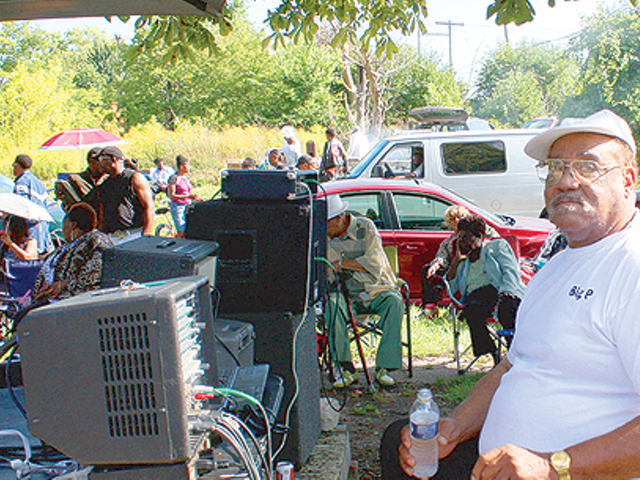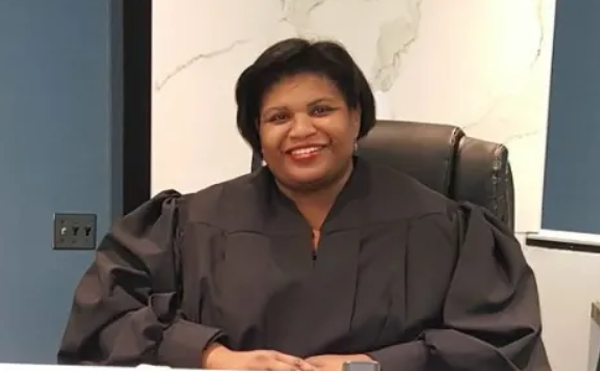The agency cites its Green Grocer Project, an initiative to provide grocery options in the city, and REVOLVE Detroit, a program that seeks to utilize vacant storefronts in Detroit business districts, as "good examples of programs that coordinate assistance to growing businesses across a number of fronts."
That can include a number of things: city processes, site selection, marketing, and financing "through a number of traditional and nontraditional resources."
"[T]he structure is very conducive to collaborations and public-private partnerships," the DEGC says.
But, as the DEGC assumed a larger role, its presence produced a downside, Boyle contends. "Detroit became a very complicated place to do business," he says. The question among potential developers became: Who was the planning authority in charge?
"Was it Detroit's Planning and Development [department]? Was it the city planning commission? Was it the Detroit Economic Growth Corporation?" Boyle asks. "It was difficult to know who was calling the shots in terms of land use, planning, and development, because we had several different planning agencies. It was complicated — and it still is, to some extent."
As the DEGC continued to grow, Boyle says the DEGC got into a habit of securing deals before there was "the appropriate public oversight."
"And to be honest," he says, "the [new Detroit Red Wings arena] is a really good example."
Detroit Red Wings owner Mike Ilitch and his company, Ilitch Holdings Inc., announced their intentions to build a new arena in downtown Detroit in late 2012. Negotiations for the City of Detroit were handled by the DEGC, whose involvement was evident as early as mid-2012, months before the project was ever disclosed to the public.
In July 2012, Mark Morante, senior vice president at the Michigan Economic Development Corporation, sent an email to the DEGC's Jackson and Brian Holdwick that said, "I need to confirm your offer of $2 million is 'on the chart.'"
The "offer" was related to a complex deal to support construction costs for a new arena. The $2 million would be a portion of the project costs potentially being committed by the Detroit DDA and Wayne County. As it was later envisioned, the state would borrow $450 million for the project, which would be repaid through three revenue streams: roughly $13 million to $15 million in state school taxes already being captured by the Detroit DDA, about $2 million annually in local taxes captured by the DDA, as well as $11.5 million generated annually at the new arena.
To move the massive proposed project forward, however, a bill lingering in the state House would first have to be resurrected, amended, and passed in order for the DDA to continue capturing those state school taxes.
This was interesting for two reasons: Negotiations between Detroit, the state, and Red Wings owner Mike Ilitch lasted throughout 2012, and Ilitch representatives were actively making rounds at the Capitol in the weeks leading up to the bill's eventual passage, hoping to persuade pols to approve the project. It was already common knowledge that Ilitch wanted a new arena for the Red Wings. It just wasn't clear when.
Yet, when negotiations began, not a word leaked about the new arena to the public. That is, until nearly five months after Morante sent that email, on Dec. 4, 2012, when the amendment to Michigan's DDA Act to allow state school taxes to be diverted for the proposed $450 million arena was introduced.
"This plan makes good business sense for two reasons," DEGC's Jackson said in a statement that day. "First, it's not a plan for an isolated, single-use structure. Instead, it builds on the clear successes we've already had downtown integrating districts that feature entertainment, and support commercial, retail and residential development around them. Second, it doesn't impose any new tax burdens; it simply continues a program for retiring debt related to economic development. It's hard to argue with that."
But as state Rep. Rashida Tlaib (D-Detroit) previously said to Metro Times of the arena negotiations: "All of that was backroom dealings. Every single thing that happened here in the Legislature, as well as on the city level — all of that was agreed upon without consulting the community."
Even if someone did want to scrutinize the project, there was never an opportunity in the run-up to December 2012 because no one outside of the negotiations knew about it — or at least made it known. And if someone from the public had been informed of the project prior to then, they would've likely been greeted by a stone wall — remember, the DEGC isn't required to disclose records inquired about through a FOIA request.
That unusual relationship between the DEGC, the DDA, and Detroit was amplified by the Red Wings arena deal: The Detroit DDA, already a separate legal entity of the city, will own the arena — yet the DEGC provides staffing and handles day-to-day operations of the DDA.
The fact the DDA will own the arena is also odd when you consider it technically has no employees. The DDA is less a public body of government than it is simply a board of directors tasked with approving projects and resolutions organized by the DEGC worth millions of dollars, usually including public money.
It's a board that meets bimonthly inside a small boardroom of the nonprofit's office on the 23rd floor of the Guardian Building. (The DDA, along with the public boards the DEGC provides services to, shares the same mailing address as the nonprofit DEGC.) Handling the downtown authority comes with a large checkbook, too: The DDA projects it will spend more than $1 billion in public tax dollars over the next 30 years, according to records obtained by Metro Times.
***
The DEGC's intertwined relationship with the DDA can perhaps best be understood through the way contract negotiations between the nonprofit and the authority are conducted. Every year, the DDA is asked to renew a contract, now worth $1.5 million, with the DEGC, which allows it to continue handling the DDA's operations.
How that is arranged, as indicated by documents reviewed by Metro Times, is as follows: The DDA first approves a resolution that allows some top DEGC employees to sign checks on behalf of the authority, called "authorized agents." Then, a DDA agent sets about ensuring the DDA board of directors will consider a resolution to contract for services with the DEGC. The downtown authority's oversight of such funding matters, it appears, is thin.
In one 2002 letter to the DEGC's Jackson, DEGC Vice President of Board Administration Art Papapanos said, "[T]he DDA hereby gives formal notice of its intent to extend the Agreement for an additional 12 month renewal term. If the above-described extension offer is accepted by the DEGC, the additional 12 month renewal term period will commence July 1, 2002, subject to DDA board approval."
Two months later, Jackson sent a letter down the hall of the DEGC's office to Papapanos, saying, "[T]he DEGC hereby accepts the extension offer for an additional 12 month renewal period commencing July 1, 2002."
One way to look at this is that the DEGC's Papapanos, on behalf of the DDA, asked Jackson if the DEGC would continue the contract to receive the necessary funding to support the nonprofit's operations, and, by extension, the DDA.
In other words, the DEGC asked itself if it wanted to pay itself.
Asked if that arrangement has ever posed an issue in the past, the DEGC said "no."
Of the dozens of resolutions the DDA board considered between 2002 and 2007, all were unanimously approved, unless a board member recused or abstained from a vote, with the exception of only two resolutions that received a single dissenting vote.
Still, while the DEGC touts its successes in managing the DDA and its six other public authorities, the truth is that many likely have no idea why it even exists.
That was the point of view taken by a former DDA board member in 2002 who, according to meeting minutes, stated she "often wondered why DDA utilized DEGC staff, but felt it would be prudent to provide in writing the reasons and rationale because even now people still want to know who staffs the DDA."
***
To WSU's Boyle, the $180 million deal cobbled together in 2006 to save the Book Cadillac Hotel likely wouldn't have happened, were it not for the DEGC and then-president Jackson's team.
Jackson, who was approved as DEGC chief in 2002, has led the agency through a period of sizable growth. During former Mayor Kwame Kilpatrick's reign, Jackson apparently was bestowed with a serious amount of trust: As he put it to Crain's Detroit Business in 2008, Kilpatrick gave his agency a "free hand to manage what has amounted to a $6 billion economic development program."
The DEGC has nearly doubled the amount of revenue it generates during Jackson's tenure: In 2004, the DEGC collected $3.86 million in revenue, according to IRS documents; by 2012, the most recent year available, it collected close to $6 million.
That growth also brought a pay increase for Jackson. In 2004, according to IRS documents, Jackson earned a total compensation of $211,000; by 2012, that number jumped to $365,000, which included a $1,000 monthly car allowance and retirement benefits.
The DEGC says the documents are a bit misleading, as they "don't take into account contributions to Mr. Jackson's total compensation made by DTE Energy during his first few years at DEGC." Jackson was an "executive on loan," which the agency says is not uncommon. Jackson had only one "material increase" in compensation during his tenure, the DEGC says.
Jackson's compensation is not unusual for someone in his position, says Jeff Finkle, president of the Washington D.C.-based International Economic Development Council. In cities as large as Detroit, he says, CEOs of economic development corporations typically earn between $250,000 and $350,000.
"They will go higher," Finkle says. "It wouldn't surprise me to see a base of $260,000-$300,000, with the ability to get a 25 to 30 percent bonus if they met certain metrics."






